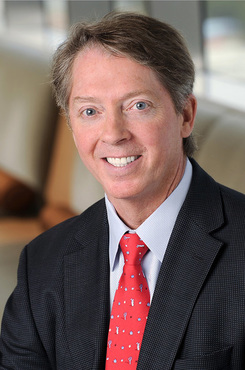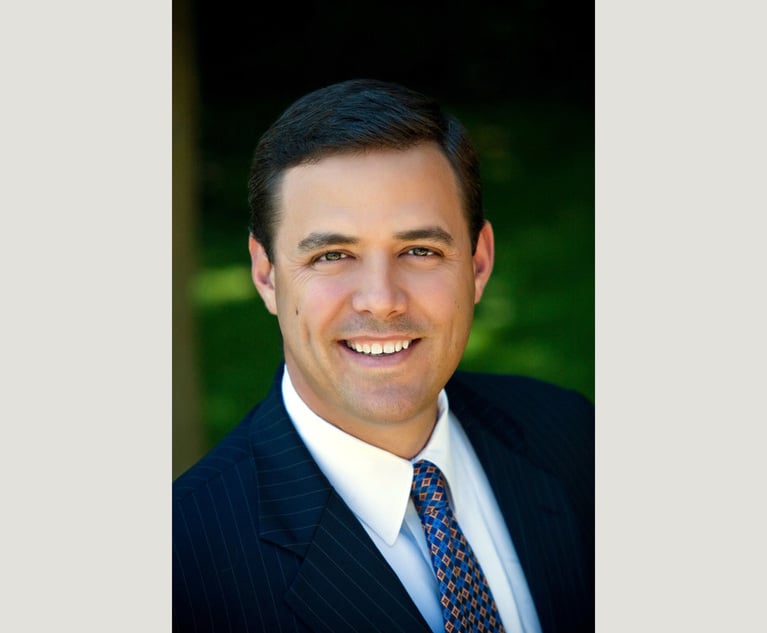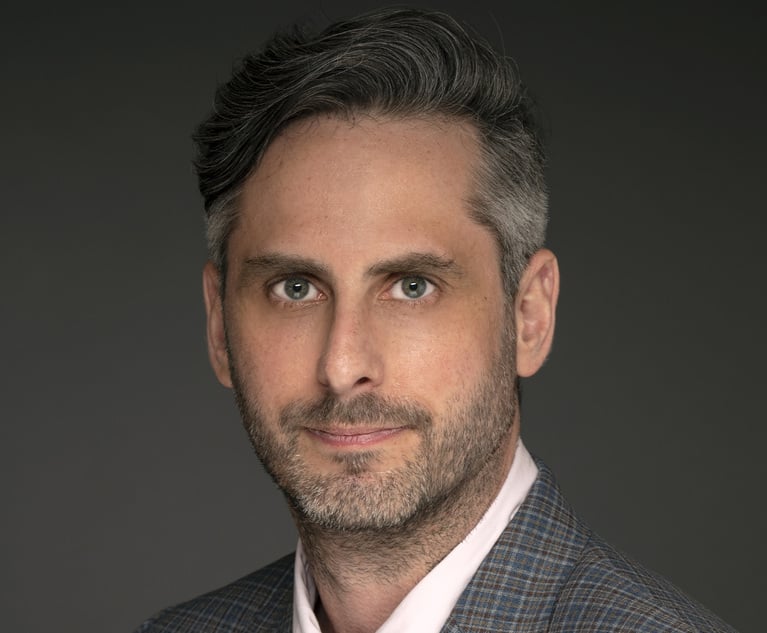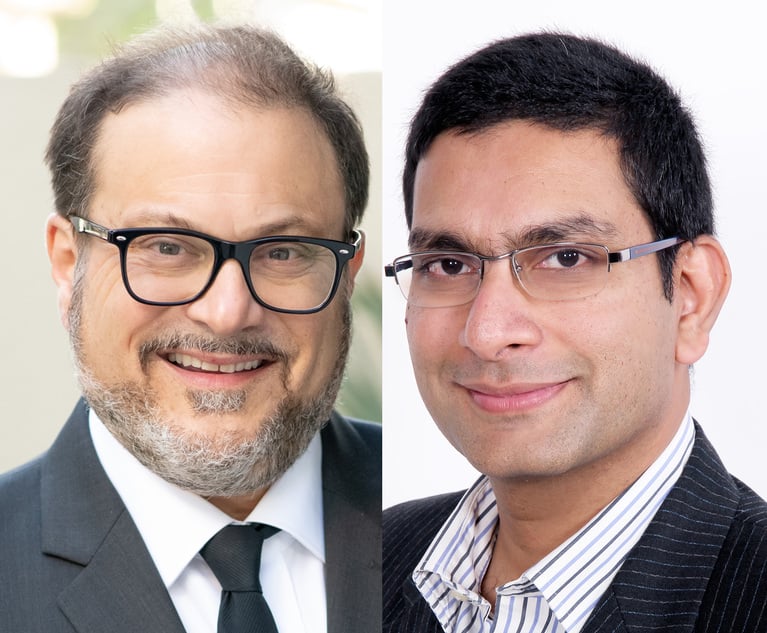O'Melveny Fuses LA Roots With Tech Sector Focus in New MediaTech Practice
Partner T. Hale Boggs discusses the new practice group, and why O'Melveny is uniquely situated in the growing Silicon Beach community.
June 28, 2019 at 11:05 AM
5 minute read
 O'Melveny & Myers partner T. Hale Boggs, son of the late trailblazing Washington lobbyist Thomas H. Boggs Jr. (courtesy photo)
O'Melveny & Myers partner T. Hale Boggs, son of the late trailblazing Washington lobbyist Thomas H. Boggs Jr. (courtesy photo)
Seeking to capture the legal work that emerges as the media and technology industries converge, O'Melveny & Myers has launched a new Los Angeles-based group to service these sectors, expanding the firm's presence in Southern California.
The group is called O'Melveny MediaTech, and will guide established and emerging companies and investors involved in content development and distribution, the firm announced Wednesday. The new group, which comprises more than 20 lawyers from the firm's California and New York offices, will be led by partner T. Hale Boggs, who joined O'Melveny in November 2018 after three decades at Manatt, Phelps & Phillips.
The Recorder caught up with Boggs to learn more about the new “MediaTech” practice and how the firm plans on positioning itself in the growing Silicon Beach market.
Boggs answers have been edited lightly for clarity and style.
Why is the firm establishing the new MediaTech practice?
Boggs: The practice is the result of what I perceive as a transformative time in Southern California in particular. If you spend time here, you just can't help but notice there is a migration of major technology companies choosing the Los Angeles market, many of them focusing on the business of Los Angeles, which I perceive as basically content development and distribution. So, companies like Amazon, Apple, Google, YouTube, [and] Netflix have all moved into the LA market, and in a substantial way—hiring thousands of people locally, spending literally billions of dollars around these different types of new content development distribution models. So for us, we see this as a major opportunity to be involved in this transformation and to help these companies succeed in their business plans.
What has driven the transformation in Southern California, and the so-called Silicon Beach?
Boggs: Southern California has always been the place where people go or stay around [for] content development, [and] that been true since the beginning of Hollywood. As the world[s] of technology and content have increasingly converged with all these mobile devices [and] all of these different types of content platforms, it seems almost inevitable that you're going to see a migration to the Los Angeles area because that is where the content developers are. So, to me, it is almost kind of an inevitable trend and frankly the one I have been involved with and [have been] following for many years.
Who is included in the MediaTech practice group?
Boggs: The practice consists of attorneys here in the firm who are involved either in media and entertainment—mostly here in the Century City office—[or] in technology and venture capital, and that includes myself, others here, and it includes several people from our Silicon Valley office, some people from our New York office, and some people from downtown LA [and] Newport Beach offices.
Who are your clients?
Boggs: There is work we have done and will do for the large companies, basically to help them if they want to expand [into Los Angeles] because it is the market where we have been for 100-plus years, and we really know the space and the important people that you need to know in this market.
We also do have a number of relationships with venture-backed companies in the mediatech sector, as well as traditional LA-based entertainment and media companies that are increasingly involved in new media content and distribution.
With all the other Silicon Valley firms opening offices in Silicon Beach, how is O'Melveny's MediaTech practice different from what they are offering?
Boggs: The main thing that makes O'Melveny different is we are a Los Angeles firm. I have a lot of respect for the Silicon Valley firms that have moved out [to LA], but none of them have the depth and experience, or the knowledge of the local LA landscape, as we do. Nor do they have the depth and experience with media and entertainment legal issues. What I would say about most of those firms, with no intention to disparage any of them, they are good at technology [law], but not necessarily good at the specific sort of media-related technology that is happening here in LA.
Some legal recruiters have said Los Angeles might not have enough qualified legal talent to fill the specific needs of the growing client base. What is your firm doing to address that issue?
Boggs: One thing that we have here at O'Melveny is a large Silicon Valley practice, [with] 35 to 40 lawyers, who are all doing exactly what you described: [the] venture-capital-focused type of practice the Silicon Valley firms do.
We have a whole training program we are implementing, [in which] a large number of associates will be trained with Silicon Valley CEOs and Silicon Valley partners. We also have had some success recruiting people who have a real interest in this space. We are getting those lawyers involved in the types of deals this group is going to be doing, and it becomes the kind of repetitive work they become very efficient at doing.
This content has been archived. It is available through our partners, LexisNexis® and Bloomberg Law.
To view this content, please continue to their sites.
Not a Lexis Subscriber?
Subscribe Now
Not a Bloomberg Law Subscriber?
Subscribe Now
NOT FOR REPRINT
© 2025 ALM Global, LLC, All Rights Reserved. Request academic re-use from www.copyright.com. All other uses, submit a request to [email protected]. For more information visit Asset & Logo Licensing.
You Might Like
View All
How I Made Office Managing Partner: 'Stay Focused on Building Strong Relationships,' Says Joseph Yaffe of Skadden

US Patent Innovators Can Look to International Trade Commission Enforcement for Protection, IP Lawyers Say

How the Deal Got Done: Sidley Austin and NWSL Angel City Football Club/Iger
Trending Stories
Who Got The Work
J. Brugh Lower of Gibbons has entered an appearance for industrial equipment supplier Devco Corporation in a pending trademark infringement lawsuit. The suit, accusing the defendant of selling knock-off Graco products, was filed Dec. 18 in New Jersey District Court by Rivkin Radler on behalf of Graco Inc. and Graco Minnesota. The case, assigned to U.S. District Judge Zahid N. Quraishi, is 3:24-cv-11294, Graco Inc. et al v. Devco Corporation.
Who Got The Work
Rebecca Maller-Stein and Kent A. Yalowitz of Arnold & Porter Kaye Scholer have entered their appearances for Hanaco Venture Capital and its executives, Lior Prosor and David Frankel, in a pending securities lawsuit. The action, filed on Dec. 24 in New York Southern District Court by Zell, Aron & Co. on behalf of Goldeneye Advisors, accuses the defendants of negligently and fraudulently managing the plaintiff's $1 million investment. The case, assigned to U.S. District Judge Vernon S. Broderick, is 1:24-cv-09918, Goldeneye Advisors, LLC v. Hanaco Venture Capital, Ltd. et al.
Who Got The Work
Attorneys from A&O Shearman has stepped in as defense counsel for Toronto-Dominion Bank and other defendants in a pending securities class action. The suit, filed Dec. 11 in New York Southern District Court by Bleichmar Fonti & Auld, accuses the defendants of concealing the bank's 'pervasive' deficiencies in regards to its compliance with the Bank Secrecy Act and the quality of its anti-money laundering controls. The case, assigned to U.S. District Judge Arun Subramanian, is 1:24-cv-09445, Gonzalez v. The Toronto-Dominion Bank et al.
Who Got The Work
Crown Castle International, a Pennsylvania company providing shared communications infrastructure, has turned to Luke D. Wolf of Gordon Rees Scully Mansukhani to fend off a pending breach-of-contract lawsuit. The court action, filed Nov. 25 in Michigan Eastern District Court by Hooper Hathaway PC on behalf of The Town Residences LLC, accuses Crown Castle of failing to transfer approximately $30,000 in utility payments from T-Mobile in breach of a roof-top lease and assignment agreement. The case, assigned to U.S. District Judge Susan K. Declercq, is 2:24-cv-13131, The Town Residences LLC v. T-Mobile US, Inc. et al.
Who Got The Work
Wilfred P. Coronato and Daniel M. Schwartz of McCarter & English have stepped in as defense counsel to Electrolux Home Products Inc. in a pending product liability lawsuit. The court action, filed Nov. 26 in New York Eastern District Court by Poulos Lopiccolo PC and Nagel Rice LLP on behalf of David Stern, alleges that the defendant's refrigerators’ drawers and shelving repeatedly break and fall apart within months after purchase. The case, assigned to U.S. District Judge Joan M. Azrack, is 2:24-cv-08204, Stern v. Electrolux Home Products, Inc.
Featured Firms
Law Offices of Gary Martin Hays & Associates, P.C.
(470) 294-1674
Law Offices of Mark E. Salomone
(857) 444-6468
Smith & Hassler
(713) 739-1250







